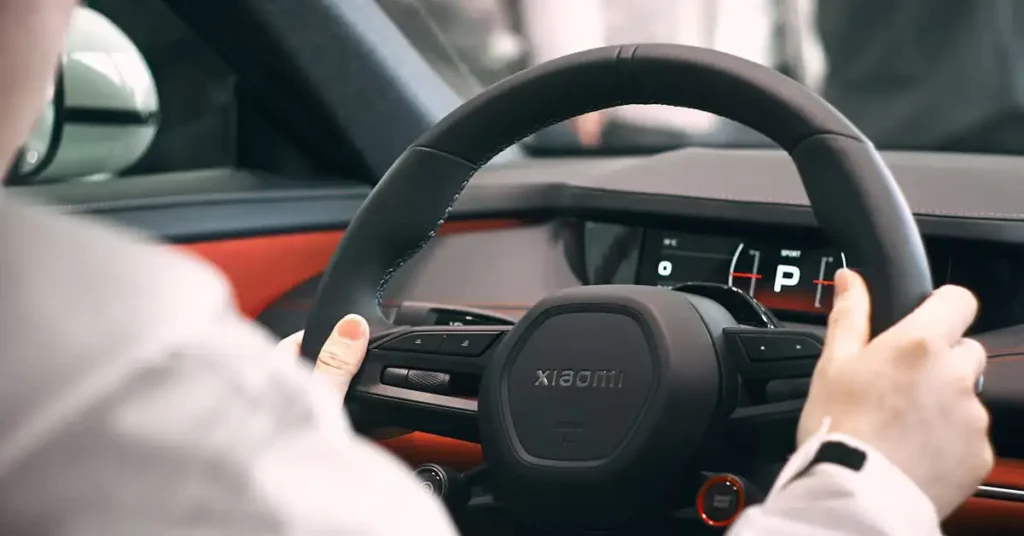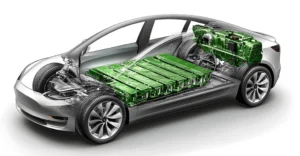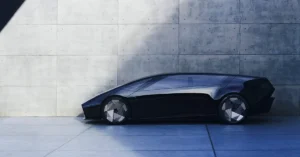When you think of Tesla, chances are you picture innovation, sleek design, and cars that have reshaped the electric vehicle market. Now imagine another tech giant, Xiaomi, quietly buying a few Teslas, rolling them into a workshop, and taking them apart piece by piece. Sounds like something out of a spy movie, right? But this is exactly what Xiaomi’s CEO Lei Jun openly admitted during a live event in Beijing. The company bought three Tesla Model Ys, stripped them down to the smallest components, and studied every nut, bolt, and line of code to understand how the world’s most popular EV really works.
This might sound surprising, but in reality, it is a classic strategy in both the car and tech industries. Tearing down competitors’ products has long been a way to benchmark, learn, and sometimes even inspire the next big breakthrough. What makes this story interesting is how openly Lei Jun acknowledged Tesla’s strengths and how Xiaomi is trying to carve its own path in the booming EV market. Let’s take a closer look at why Xiaomi did this, what they learned, and what it could mean for everyday drivers like you and me.
Why Did Xiaomi Take Apart Teslas?
Posts
Xiaomi is no stranger to the idea of learning by imitation. The brand made its name in smartphones by studying market leaders like Apple and Samsung, then offering competitive alternatives at a fraction of the cost. The same playbook now applies to cars.
According to Lei Jun, Xiaomi engineers disassembled three Model Ys earlier this year, carefully examining each part and comparing it against their own YU7 SUV design. Instead of claiming superiority, Lei admitted that Tesla’s work is “very, very outstanding,” showing rare humility in an industry where bold claims are the norm.
This approach also signals Xiaomi’s ambition to meet global standards right from the start. The Model Y is Tesla’s best-selling car and one of the most widely recognized EVs worldwide. If Xiaomi could match or even improve upon it in some areas, the company would stand a stronger chance in global markets where consumer trust is harder to win.
Learning From Rivals Is Nothing New
Before you imagine Xiaomi sneaking around in Tesla’s backyard, it is important to understand that benchmarking competitors is an industry standard.
Electronics makers regularly buy and dismantle each other’s phones and laptops to analyse design choices, materials, and manufacturing costs. Car companies have been doing the same for decades. Even luxury brands are not immune to this. Ferrari has been rumoured to study competitor EVs closely, especially with its first dedicated electric supercar on the horizon.
So Xiaomi is not doing anything unusual, but what makes it stand out is how transparent Lei Jun has been. Instead of pretending they are inventing everything from scratch, he openly tells customers, “We learned from the best, and here is how we made it our own.”
The Problem: Demand Outstripping Supply
Xiaomi’s problem is not about building attractive cars, but keeping up with demand. Within 18 hours of launching the YU7 SUV, the company received 240,000 orders. Some customers were told they may have to wait over a year for delivery. That is a massive challenge for a brand still new to the car industry.
Frustrated buyers often flood social media when they realize how long they will be waiting. In a surprising twist, Lei Jun has even advised people to consider alternatives like Tesla’s Model Y, Xpeng G7, or Li Auto i8 rather than sitting in the backlog. It is a rare move for a CEO to recommend a rival’s car, but it shows how serious Xiaomi is about customer experience, even if it means losing a sale.
What This Means For The EV Market
By admitting Tesla is a benchmark and showing their willingness to learn, Xiaomi has positioned itself as a pragmatic challenger rather than a brash disruptor. That approach could resonate well with buyers who want reliability, value, and transparency in an increasingly crowded EV market.
Tesla may remain the global leader for now, but Xiaomi’s momentum cannot be ignored. With the SU7 sedan and YU7 SUV already attracting huge numbers of orders, the company is proving that consumers trust them beyond smartphones and electronics. The key question is whether Xiaomi can scale up production fast enough to meet expectations.
The Agitation: Trust vs Skepticism
hile excitement is high, skeptics point out that learning from Tesla is one thing, but matching Tesla’s real-world durability, charging infrastructure, and long-term software updates is another. Some buyers may worry about Xiaomi’s relative inexperience in handling large-scale recalls or complex supply chain issues.
For Xiaomi, the challenge lies not only in proving that their cars are competitively built but also that they can support owners years down the road. After all, a great first impression is only half the battle in the car world.
The Solution: Transparency And Value
So how does Xiaomi counter these doubts? By being transparent and offering strong value. Lei Jun’s willingness to praise Tesla while showcasing Xiaomi’s own cars side by side shows confidence without arrogance. By highlighting affordability, strong design, and customer-first messaging, Xiaomi is appealing to a wide audience of drivers who want the EV experience without the premium Tesla price tag.
If Xiaomi manages to pair competitive pricing with robust after-sales support, it could win over skeptical drivers who worry about betting on a new brand.
Broader Trend: Tech Giants Entering Cars
Xiaomi is not alone in this race. Apple has long been rumored to be developing a car project, though with delays and internal challenges. Huawei has partnered with automakers in China to bring its tech expertise into EV dashboards. The line between consumer electronics and automobiles is blurring fast, and the next generation of cars may feel more like smartphones on wheels.
For consumers, this could mean better connectivity, more affordable options, and faster innovation cycles. But it also means more competition, more variety, and sometimes more confusion. Choosing an EV today involves comparing specs, range, charging networks, and now even brand philosophies.
FAQs
Did Xiaomi really buy Teslas just to take them apart?
Yes, Lei Jun confirmed during a live event that they purchased three Model Ys to study every detail and benchmark against their YU7 SUV.
Is this practice legal?
Absolutely. Reverse engineering for learning and benchmarking is common across industries. What would not be legal is directly copying protected patents or designs.
Will Xiaomi compete globally against Tesla?
That is the long-term plan, but first Xiaomi needs to handle massive domestic demand. Once production stabilizes, they will likely expand aggressively overseas.
Why did Lei Jun recommend Tesla to customers?
With overwhelming demand and delivery delays, he encouraged buyers to consider alternatives like Tesla’s Model Y instead of waiting over a year for a Xiaomi.
Conclusion
Xiaomi’s decision to buy, dismantle, and study Tesla’s Model Y highlights the reality of modern competition. Innovation is rarely born in isolation. Instead, it often comes from learning, adapting, and improving on what already works.
Tesla may still be the benchmark, but Xiaomi’s willingness to be transparent, admit strengths in rivals, and then deliver high-demand cars shows that the EV race is only heating up. For drivers, it means more choices, better value, and the exciting possibility that the next car in your driveway may come from a brand you once only associated with smartphones.
MotorHub UAE Insight: EV Choices Closer To Home
The EV market in the UAE is also rapidly evolving, with growing demand from both everyday drivers and premium buyers. Tesla continues to have a strong presence, but Chinese brands like BYD and XPeng are already gaining traction here. If Xiaomi enters the region with competitive EVs like the YU7, it could shake up the market even further, giving UAE drivers more affordable options without compromising on range or technology. For now, one thing is certain: the race to dominate the electric car world is just getting started, and MotorHub will keep you updated every step of the way.



